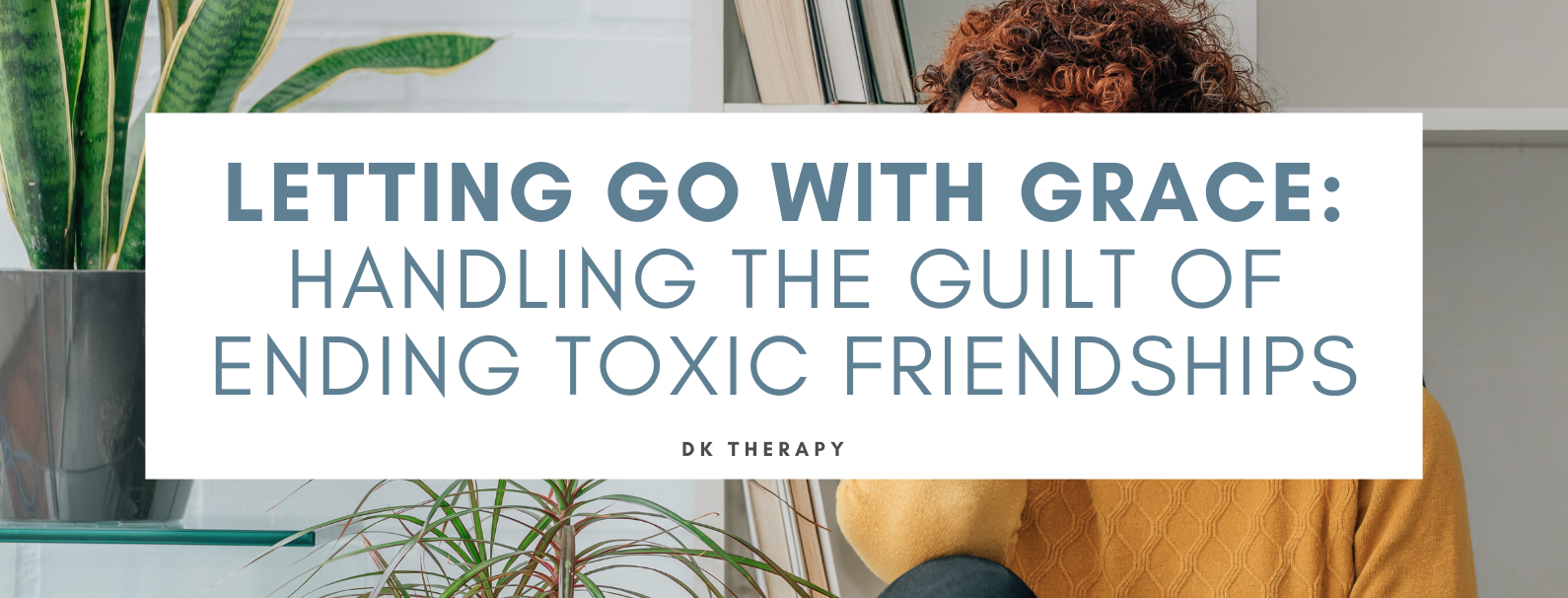
Quality friendships enrich our lives and provide us with support, enjoyment, and companionship. However, not all friendships are this positive. Sometimes, we find ourselves tangled up in toxic friendships that strip us of our energy, diminish our self-esteem, and interfere with our personal growth. Though ending these sorts of friendships may be necessary, it’s not easy.
Let’s explore strategies to employ if you need to end toxic friendships without letting guilt consume you.
Understanding Toxic Friendships
 It’s important to be able to recognize signs of toxicity in your friendships, such as constant negativity, manipulation, lack of respect, jealousy, and constant taking with no giving in return. Instead of building you up, a toxic friend will wear away your self-worth and happiness, which means they’re no friend at all. If you’re feeling like your friendship is more of a chore than a joy, it’s probably time to walk away so that you’re no longer left feeling depleted.
It’s important to be able to recognize signs of toxicity in your friendships, such as constant negativity, manipulation, lack of respect, jealousy, and constant taking with no giving in return. Instead of building you up, a toxic friend will wear away your self-worth and happiness, which means they’re no friend at all. If you’re feeling like your friendship is more of a chore than a joy, it’s probably time to walk away so that you’re no longer left feeling depleted.
How to Let Go of Toxic Friendships with Grace
If maintaining a relationship with your friend makes you feel miserable, you may need to end the friendship for your own well-being. Here’s how to set about freeing yourself from this entanglement and preventing guilt from changing your mind.
Validate Your Feelings
Ending any friendship, even a toxic one, can make you experience an array of emotions, including guilt, doubt, and sadness. As such, it’s essential to acknowledge and validate your feelings instead of suppressing them. Understand that feeling guilty is a normal response when cutting someone out of your life, but don’t let it take over. Prioritize your well-being and remind yourself that you deserve healthy and supportive friendships.
Reflect on Your Reasons to Let Go
After ending your friendship, take time to reflect on why you made this choice. Acknowledge that the decision you made took a lot of conviction and it wasn’t something you did at the drop of a hat. You might have been tired of dealing with disrespectful behavior, being bogged down with negativity, or having your friend betray your trust time and time again. Review what motivated you to end your friendship and realize that where things are now is not your fault. You’re not responsible for someone else’s behavior.
Release Your Guilt
Letting go of the guilt you’re feeling is possibly the hardest, but most important step in this process. You didn’t do anything wrong, and you put up with a toxic relationship for long enough. Things didn’t change, although you gave your former friend chances to improve. Stepping out on a relationship that drags you down is not selfish, it’s completely necessary when it comes to your overall well-being. Trust your instincts and know that you did what you had to do to protect yourself from harm. Grieve the loss of the friendship, but don’t let the steps you had to take eat at you.
Take Care of YOU
Even though you know you’ve done the right thing, you might be dealing with complex feelings about your choice to end your friendship. Take time to work on yourself and engage in activities that are going to help you refresh. Work on a hobby you enjoy, practice mindfulness or meditation, focus on healthy habits, and keep positive influences around. By caring for yourself, you can work toward healing and shedding the negative feelings you’re experiencing.
The guilt that comes with ending a toxic friendship can be a lot to handle, but it’s essential to overcome the challenges you’re facing. By trusting yourself and taking care of your well-being, you can get through this process and be a better person for it. Remember, you deserve to have people in your life who uplift and empower you. Life is too short to let someone who claims to be your friend drag you down.
If you’re struggling and you’re interested in trying therapy, reach out to DK Therapy and schedule an appointment with our office to connect with an experienced counselor.




